Search Images
Browse Content (p. 1488)
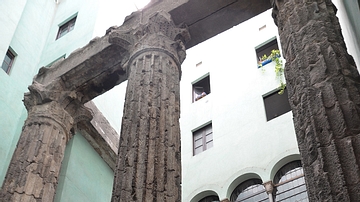
Image
Temple of Augustus, Barcelona
The remaining columns of the Temple of Augustus in Barcelona (Spain). It was built during the early Imperial period in the Roman colony of Barcino as a place of worship for Emperor Augustus (27 BC - 14 CE).

Image
Colonnaded Street at Laodicea on the Lycus, Turkey
Colonnaded street at Laodicea on the Lycus in Phrygia (modern-day Turkey).
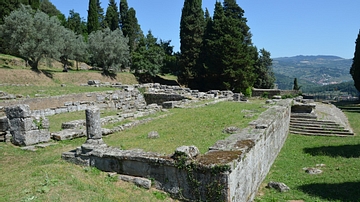
Image
Etrusco-Roman Temple, Fiesole
Etrusco-Roman temple in Fiesole (Tuscany, Italy), first built around the late 4th century BCE, destroyed by fire in the 1st century BCE and rebuilt by the Romans under Augustus.
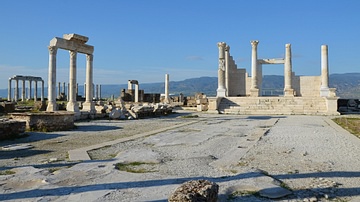
Image
Roman Temple at Laodicea
The Temple A at Laodicea on the Lycus in Phrygia (modern-day Turkey) with four spirally fluted columns in the front (prostyle temple). It was built in the Antonine period (2nd century CE) and was heavily renovated during the reign of Emperor...
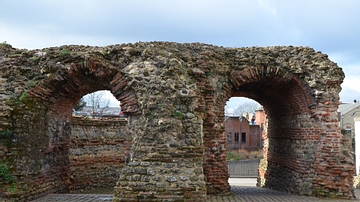
Image
Roman Gate of Camulodunum (Colchester, UK)
The Balkerne Gate, a 1st-century CE Roman gateway in Camulodunum (modern-day Colchester in Great Britain). It is the largest surviving gateway in Roman Britain.
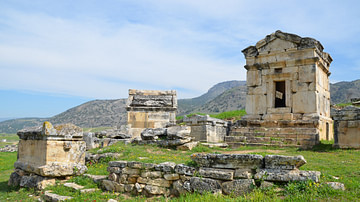
Image
Northern Necropolis of Hierapolis, Phrygia
The northern necropolis of Hierapolis in Phrygia (modern-day Pamukkale, Turkey) with many different types of tombs. This extensive necropolis of about 1,200 tombs extends for over two kilometres (1.2 miles) from the northern to the eastern...
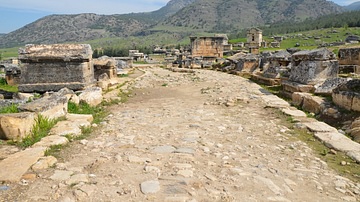
Image
Roadway, Northern Necropolis of Hierapolis
The northern necropolis of Hierapolis in Phrygia (modern-day Pamukkale, Turkey) with many different types of tombs. This extensive necropolis of about 1,200 tombs extends for over two kilometres (1.2 miles) from the northern to the eastern...
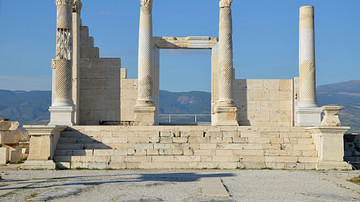
Image
Roman Temple Front, Laodicea
The Temple A at Laodicea on the Lycus in Phrygia (modern-day Turkey) with four spirally fluted columns in the front (prostyle temple). It was built in the Antonine period (2nd century CE) and was heavily renovated during the reign of Emperor...
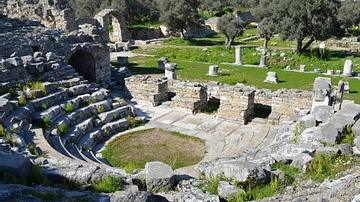
Image
Bouleuterion of Iassos
The Bouleuterion of Iassos, dated to around the end of the 1st century CE (the original building was probably erected in the 4th century BCE). Its capacity has been estimated at 960 persons. A bouleutrion was used for public meetings, typically...
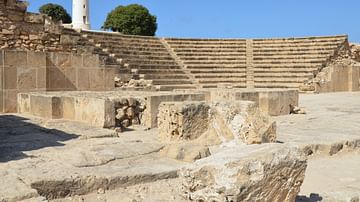
Image
The Odeon of Nea Paphos, Cyprus
The Odeon located in the northeastern part of the ancient city of Nea Paphos (modern-day Paphos in Cyprus), was built in the 2nd century CE and could held approximately 1,200 spectators.